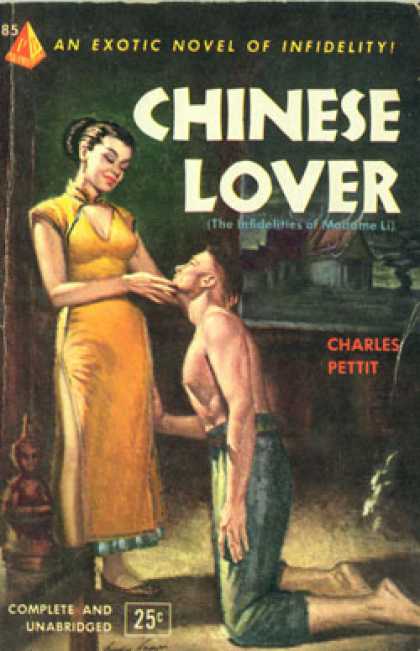China's Dongfeng On The Prowl For Western Beauties

Western auto makers in distress are in the cross-hairs of Chinese auto makers that are riding one of the largest car booms in history. When Geely closed its deal with Ford over Volvo, we wrote: “Government owned companies like FAW, SAIC, Dongfeng, or BAIC will watch closely how privately owned Geely will digest the Volvo purchase. If successful, western car companies will be on their shopping list again.” They already are.
According to Reuters, China’s Dongfeng “ said it sees opportunities for mergers and acquisitions in the global auto sector still reeling from the fallout of the global downturn.”
Dongfeng “will closely monitor opportunities for overseas acquisitions,” Chairman Xu Ping told reporters in a news conference today.
He added that a rising Yuan, which many believe will take place in the next few months, would further strengthen Dongfeng’s position in making any acquisitions.
Succumbing to pressure from (or making a deal with) the U.S., China is expected to let its currency float, at least a bit more than now. That will make American union leaders happy. They think jobs will come back stateside in droves. They most likely will be disappointed. A stronger Chinese currency makes foreign sourced products – or companies – cheaper for China. China can go up the value chain. Instead of competing with the U.S. with cheap stuff, there will be competition for more expensive stuff. For instance for cars.
As China visionary Jack Perkowski notes in his blog Managing The Dragon,
“Japan’s exports to the United States continued to increase in the mid-1980s, even after the country allowed the yen to appreciate significantly against the dollar. Similarly, China’s exports to the United States increased by 40 percent from July, 2005 to July, 2008, a three year period which saw the Yuan appreciate by 21 percent.”
A stronger Yuan will add to the inflationary pressure on America while the U.S. printing press is already in overdrive.
Be it as it may, Chinese car makers will translate their cash and possibly a higher Yuan into buying foreign expertise. State-owned Dongfeng, the Chinese joint venture partner of Nissan, Honda, and PSA is sitting on $2.55b in cash. If they need more, the government will provide it.
According to Reuters, “Chinese auto makers are eager to buy technologies and brands from overseas to enhance their competitiveness in the U.S. and European markets.”
Ever since I have been writing for TTAC, China’s #3 Dongfeng has been seen as a player. In November 2008, China’s 21st Century Business Herald said that Dongfeng was interested in buying GM and/or Chrysler. If they only would have. At that time, both companies still had some value, and the U.S. tax payer would have been spared the bail-out cost.
Instead, the U.S. has embarked on silly trade wars about tires and gift wrapping ribbons that have not brought a single job back to the U.S. By insisting on a higher Yuan, the U.S. lowers the price on foreign know-how and assets, and hastens the speed by which the U.S. auto industry will be wiped out by the Chinese.
But explain that to the knuckleheads at the UAW. They only learn one way: The hard way.

Bertel Schmitt comes back to journalism after taking a 35 year break in advertising and marketing. He ran and owned advertising agencies in Duesseldorf, Germany, and New York City. Volkswagen A.G. was Bertel's most important corporate account. Schmitt's advertising and marketing career touched many corners of the industry with a special focus on automotive products and services. Since 2004, he lives in Japan and China with his wife <a href="http://www.tomokoandbertel.com"> Tomoko </a>. Bertel Schmitt is a founding board member of the <a href="http://www.offshoresuperseries.com"> Offshore Super Series </a>, an American offshore powerboat racing organization. He is co-owner of the racing team Typhoon.
More by Bertel Schmitt
Latest Car Reviews
Read moreLatest Product Reviews
Read moreRecent Comments
- Dave M. Always thought these were a great design, timeless in fact. But as a former Volvo owner who was bled to death by constant repairs starting around 40k miles, run far far away
- MrIcky no
- Keith_93 I've rented both in the past few months. The RAV4 was OK, but the CX5 is wayyyy more civilized. Mazda really impressed me, impressive car on the highway. Simply a well thought out and pleasant drive.
- AZFelix "I must not fear. Fear is the mind killer..."I will adorn the many surfaces of my car with 'do not enter' and 'stop' signs."Where the fear has gone there will be nothing. Only I will remain."
- Ajla Ajla, the head of the "ajla is cool" awareness organization, believes that ajla is cool.


































Comments
Join the conversation
Why does everyone think that the fixed exchange rate is to hold the value of RMB down? I lived in China for 17 years and witnessed the RMB going from $0.5 down to about $0.1. I can tell you, the fixed exchange rate was there to hold the value UP, not DOWN. Just look at the USA, if the government wants to de-value the currency, they don't need to fix anything. Just print more paper money. Only governments that face an ever-declining currency would post an official fixed exchange rate and disallow any free exchange. Look at Soviet Union and very recently, Argentina. My prediction is: if RMB is allowed to float, it will go up against the USD in the first year (due to propaganda) and then it will be flushed down into the toilet, not unlike the Soviet Ruble.
Add to my previous post: If the Americans really think that the RMB is undervalued, they can invest in RMB. Like, accept RMB as payment for American exports to China. But really, they won't, because they only say it, they don't mean it.